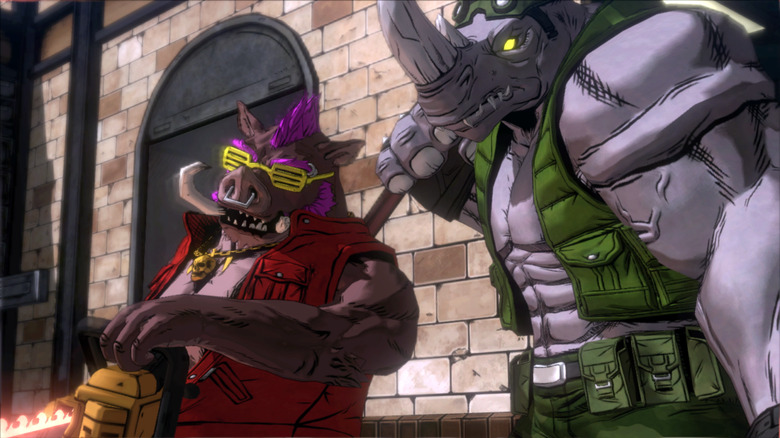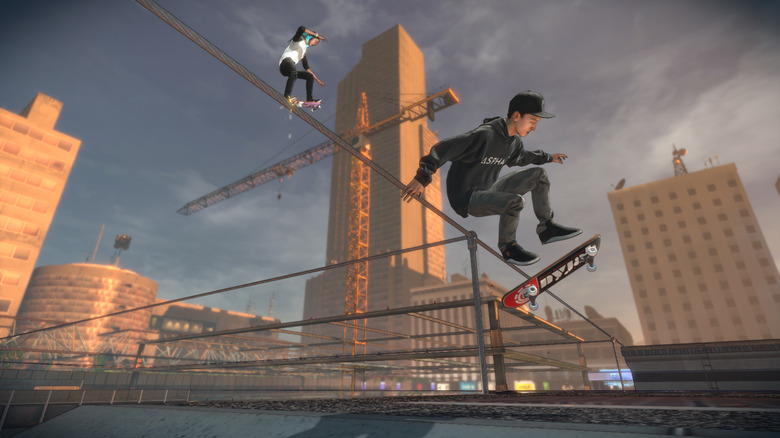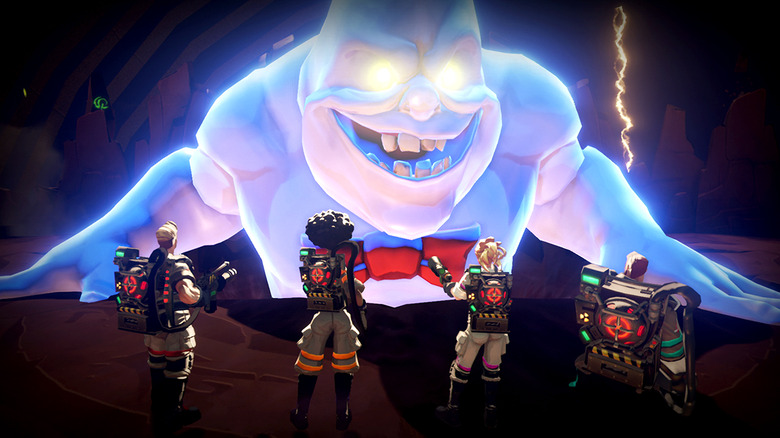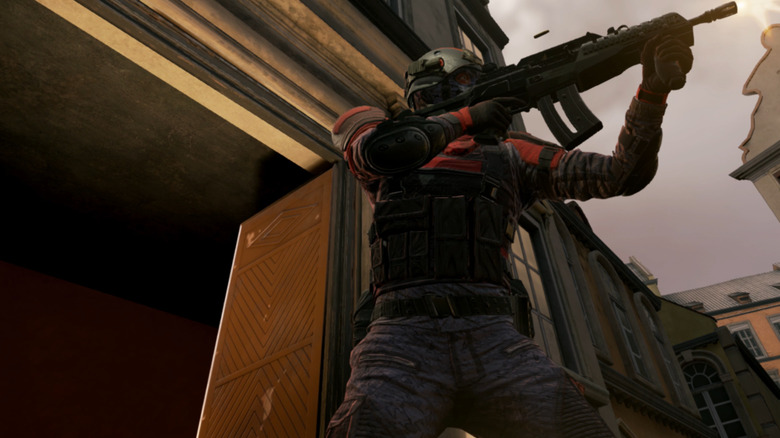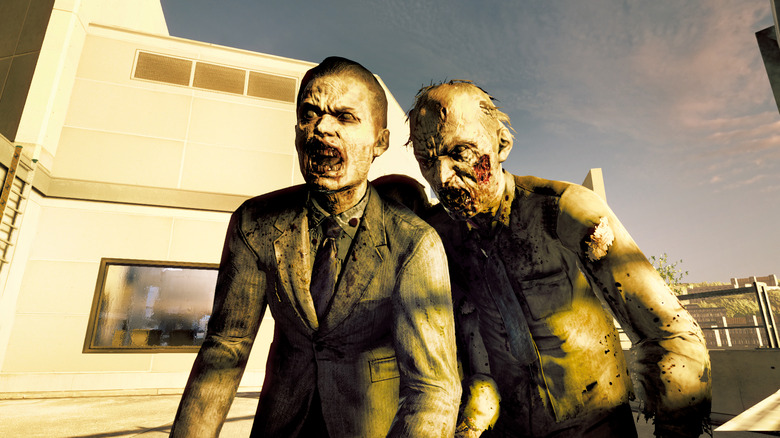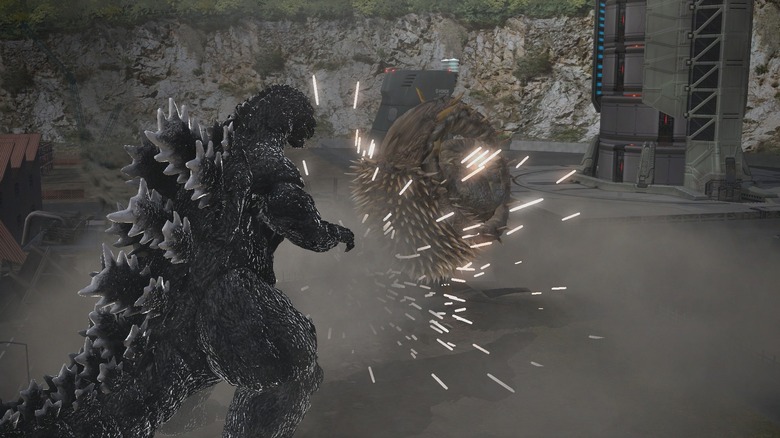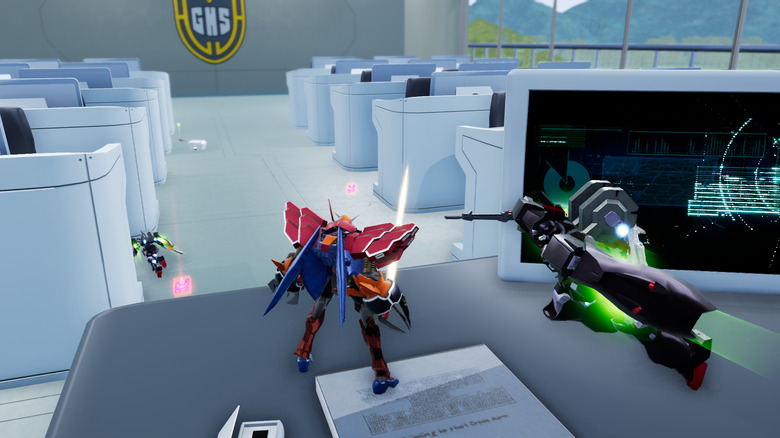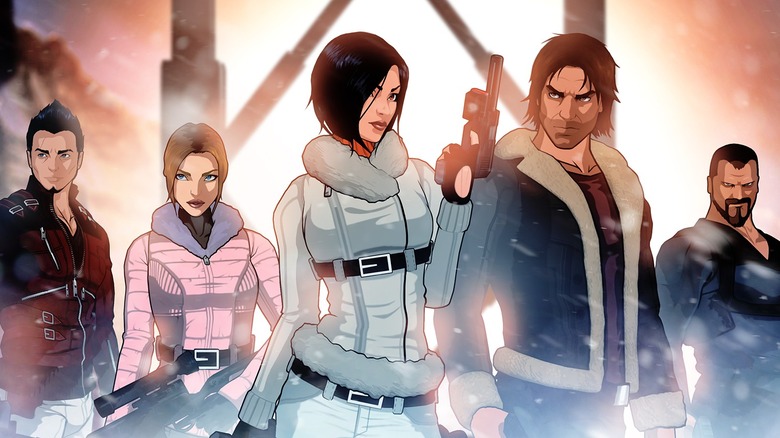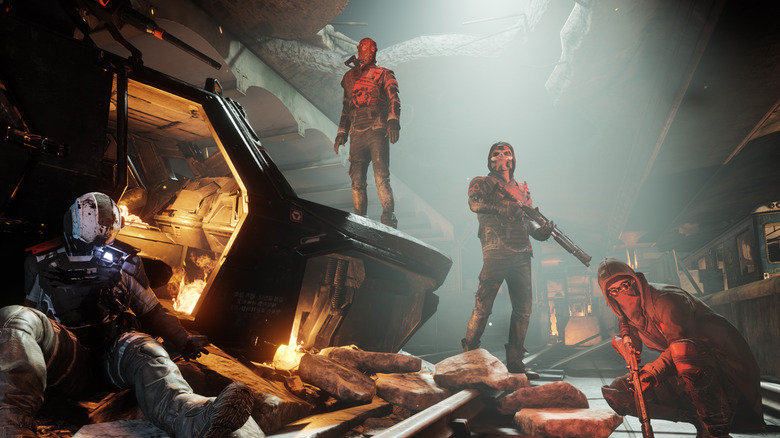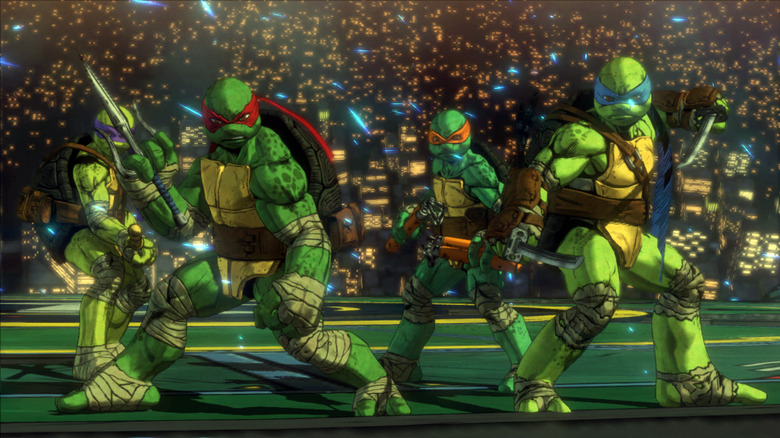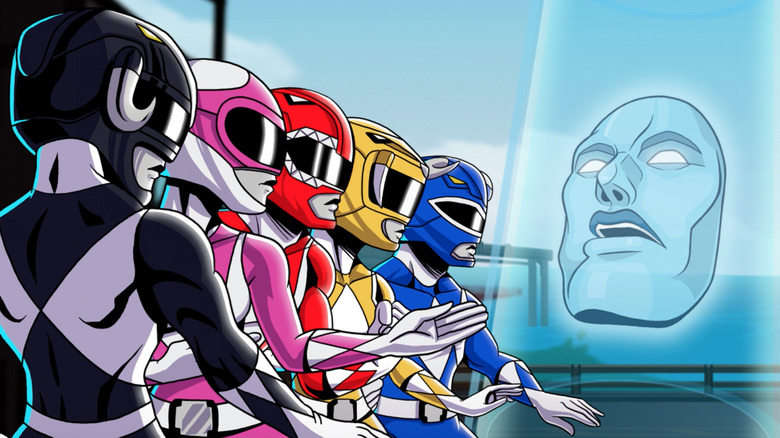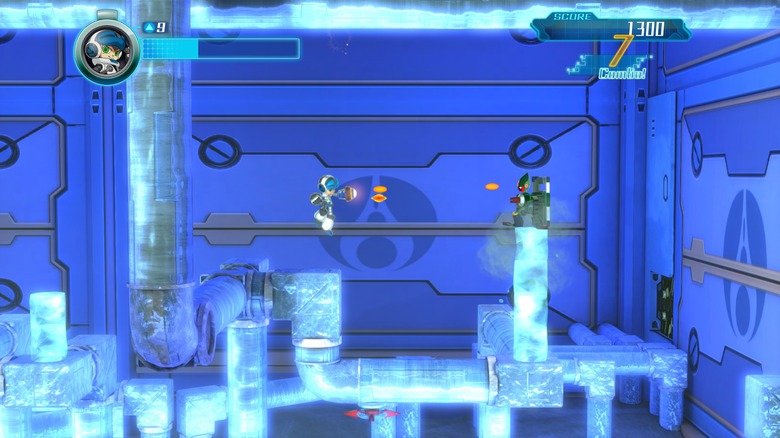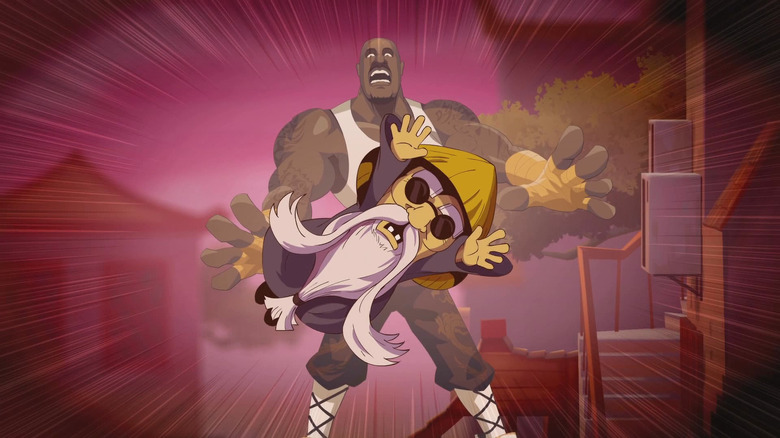The Worst PS4 Games Ever Made
If you can crown any current-generation home console the "winner" based on its exclusives, it would have to be the PlayStation 4. Simply running through a few of the titles will help you understand why. There's the dark, difficult Bloodborne, for instance. There's also the grand, gorgeous Uncharted 4. The team at Guerrilla Games jumped from the first person shooter genre into the realm of open-world action adventure, working on Killzone: Shadow Fall before delivering another hit in Horizon Zero Dawn. And we wouldn't be doing our jobs if we left instant classics like God of War and Marvel's Spider-Man off the list.
Unfortunately, though, not everything that's come to the PlayStation 4 has been gold. For all of the amazing gaming moments you can experience on Sony's console, there are a whole bunch of games that fail to hit even the lowest bars of quality. Among the entries in this hall of shame are shallow cash grabs, major studio missteps, and indie flops. They could have showed some promise on the outset, and might have initially gotten fans excited, but their final review scores told a far different tale.
These are the games on the PlayStation 4 that you should avoid at all costs. They're the worst of the worst, and we're going to tell you why.
Tony Hawk's Pro Skater 5
Tony Hawk's Pro Skater 5 had all the runway needed to be a successful title. The early THPS games were hugely popular. There hadn't been a mainline Pro Skater game since 2002, which was more than enough time for everyone to miss them. And the skating genre itself was extremely underrepresented when THPS5 launched 2015. Not only had the Tony Hawk series taken some time off, but there hadn't been a new Skate game in a while, either. The trophy was there to be had. All Tony Hawk's Pro Skater 5 had to do was show up and be a serviceable skating game to take it home.
The game failed miserably. Just about everything about Tony Hawk 5 was bad, and you need not look any further than Giant Bomb's review, which summed it up nicely. According to Giant Bomb, Tony Hawk's Pro Skater 5 was "a mess of half-cocked ideas, astoundingly poor execution, and technical woes that layer a little insult on top of injury."
Why would Activision add this disappointing game to what was otherwise a much-beloved series? Rumor had it at the time that the publisher was set to lose the Tony Hawk license. Guess it's better to cash in quickly with a bad product than worry about all that pesky quality.
Ghostbusters
There was already a whole lot of controversy surrounding the Ghostbusters franchise in 2016. To start, that was when the newest movie in the Ghostbusters universe came out, and for some reason, people found a female-led Ghostbusters film to be a huge affront to everything they knew and loved. But as much as we'd love to roll our eyes about that, we're here to talk about an actual atrocity — the 2016 video game.
It brought back memories of the days when licensed video games were reliably awful. And you might not be surprised to learn that this one was also published by Activision, a studio that seems to have a fetish for bad licensed games. Twinfinite pulled no punches with its review, which called Ghostbusters "a game without a purpose, plot, or any sense of next generation presentation," adding, "If you ever needed an example of what bad licensed titles can look like, this is the game for you."
Ghostbusters definitely earned its spot on this list, and pretty much guaranteed that we won't see another game using the beloved brand anytime in the near future.
Bravo Team
Supermassive Games seemed like a studio on the fast track to superstardom. The company hit it out of the park with the PlayStation exclusive horror game Until Dawn, putting them suddenly on everyone's radar. After Until Dawn: A Rush of Blood released in the fall of 2016, the industry realized that Supermassive could make pretty good VR games, too. The studio got to work on two more PlayStation VR games, The Inpatient and Bravo Team. The Inpatient arrived first, released in January 2018 to so-so reviews.
As it turns out, so-so would have been a lot more preferable to the reception that Bravo Team got in March 2018.
Bravo Team is a game that, unfortunately, the team at Supermassive just didn't seem equipped to make. It's a VR military-style shooter that isn't very good as a VR game or as a shooting game. GameSpot said that, based on when Bravo Team released in relation to PSVR's launch, it was "archaic" and "a game that's been outclassed several times over." The result leaves Supermassive 0 for 2 on its VR attempts. We hope they get back to making more games like Until Dawn. Until then, you should probably tread carefully around its other projects.
Umbrella Corps
How do you know when a Resident Evil game is really bad? The answer is, if you barely hear about it. When Umbrella Corps released in the middle of 2016, it didn't get much coverage. The hype machine was full steam ahead for Resident Evil 7, which was slated to arrive early in 2017. And Umbrella Corps wasn't even a proper RE game. It was almost as though the game was afraid to use Resident Evil in the title at all. After playing it, most understood why.
Umbrella Corps was a poor attempt at bringing Resident Evil into the world of online multiplayer shooters. Frankly, it didn't deserve to be called a Resident Evil game in the slightest. Game Informer, which isn't known for putting on the kid gloves, hammered home exactly why Umbrella Corps was such a disappointing game. "I once waited almost 20 minutes for a match that lasted less than 10 minutes," said reviewer Ben Reeves. "In that amount of time, you could drive to the store and buy a better game."
Based on the review scores, and the number of people who actually bought the game, it seems most people took Reeves' advice.
Godzilla
If you're a fan of the Godzilla franchise, or if you're even remotely familiar with the property, you could probably see the potential in a video game based on it. That goes double if you actually get to play as Godzilla, walking around the city, stomping on cars, and smashing buildings. That sounds like a lot of destructive fun to be had. What could go wrong? In the hands of BANDAI NAMCO, apparently, everything can go wrong.
It seems that most saw this bad Godzilla game coming, as you can barely find a large, mainstream gaming site that took the time to review it. Some internet sleuthing will eventually lead you to some more niche sites like Honest Gamers, and most of those share a common theme in their reviews of Godzilla: it's hot garbage.
"Godzilla gets very little right," Honest Gamers said in their review, stating that it "started off as mostly inoffensive and from there soured to the point of absolute repugnance." That is a pretty strongly worded rebuke of this take on the Godzilla license. Shame on BANDAI NAMCO for developing it. Shame on BANDAI NAMCO for publishing it, and shame on any company that knowingly puts a bad licensed game out into the world.
New Gundam Breaker
It's safe to say that Activision and BANDAI NAMCO aren't exactly the grand prize winners on this list. Activision managed to trash both the Tony Hawk license and the Ghostbusters license in a very short period of time. And BANDAI NAMCO? It buried the Godzilla in a pile of rubble, and then went forward and did the same thing to the Gundam series a few years later. The best thing we can say about New Gundam Breaker is that the idea behind the game is unique. Unfortunately, that doesn't save it from being uniquely bad.
If you're someone who appreciates a brutally honest review, you'll probably feel for Todd Rigney, who had to cover New Gundam Breaker at We Got This Covered. That pour soul slammed the game with the site's lowest score, "UTTER FAILURE," stating that "New Gundam Breaker feels unfinished. The combat system doesn't work, the visual novel is stale and uninspired, and the dating sim doesn't fit. In short: It's a pretty terrible game."
This is one you'll definitely want to put on your list of games to avoid — even if you love the Gundam franchise.
Fear Effect Sedna
Fear Effect Sedna was born out of a fairly decent idea. Square Enix currently sits on a whole lot of idle properties that fans would love to see make a comeback. So the company thought, why not farm some of these IPs out to indie studios and give the fans what they want? The Fear Effect franchise ended up with a studio called Sushee. And, unfortunately, Sushee did away with everything that made the early Fear Effect games memorable.
For starters, Fear Effect Sedna is far from the Resident Evil-style experience of the first two games. Instead, Sushee opted to slap the Fear Effect logo on a real time strategy and stealth game. To make matters worse, the RTS mechanics are ineffective and the stealth aspects of Fear Effect Sedna are broken. Add a nonsensical narrative to the mix and you have something that in no way resembles the property it purports to represent. Fear Effect Sedna could have been called something different entirely and no one would've been the wiser.
Push Square knocked Fear Effect Sedna for its "woeful voice acting, rubbish combat encounters, and a cavalcade of other frustrations." You'll have more fun not playing this game than playing it, and for fans of Fear Effect, that sucks.
Homefront: The Revolution
Homefront: The Revolution is one of those games that we really rooted for because of its premise. There's nothing like a cool take on alternate history, whether its found in a video game like the new Wolfenstein series or in a TV show like The Man in the High Castle. In Homefront's case, the setting is a near-future America that's been invaded and taken over by North Korea, which has become the leader in tech.
There's a sort of silly irony in that premise, though — the story banks on North Korea being a highly advanced technological powerhouse, but everything in Homefront itself is so terribly buggy. The team at PSNation reviewed Homefront: The Revolution and came to the following conclusion: it's a mess. "I was unable to finish the campaign due to the bugs and glitches even after giving it a second chance," said the site's review. "No one should have to restart a game three times just to finish the single player campaign."
Your best bet for alternate history is the aforementioned Wolfenstein games, if they're your sort of thing. Homefront, it seems, doesn't deserve to exist in any kind of reality.
Teenage Mutant Ninja Turtles: Mutants in Manhattan
Here's another licensed game coming your way. If you've been paying attention so far, there's a good chance you can narrow the publisher down to one of two companies. Go ahead, we'll let you guess.
It's Activision. As the company did with so many licenses before, Activision signed off on a take on the Teenage Mutant Ninja Turtles franchise that was probably doomed the moment it was announced. And true to form, Teenage Mutant Ninja Turtles: Mutants in Manhattan somehow manages to offer the bare minimum in fan service and fun.
The website Shacknews offers what appears to be the most disappointed review of them all, written by longtime TMNT fan Cassidee Moser. "Mutants in Manhattan is so aggressively dull and sub-par there's little to no joy to be taken from playing it," says the review. "Like a coloring book, it's nothing more than a shallow collection of non-stimulating activities and disconnected clichéd references created with the purpose of alleviating mild boredom."
If you grew up watching the Teenage Mutant Ninja Turtles and playing with TMNT action figures, regardless of the era, you won't find anything to like about this game. It stars the Turtles, and that's about all it does right. Avoid this one with everything you've got.
Mighty Morphin Power Rangers: Mega Battle
You don't have to guess this time around, but we'll tell you that this licensed game won't buck the trend with regard to who published it. This is another BANDAI NAMCO joint, putting the scoreboard at three apiece for both Activision and Bandy. Like the Turtles game covered earlier, fans will have either nostalgia for the Mighty Morphin Power Rangers or love for the current iteration of the series, depending on age.
And like Mutants in Manhattan, there's not much to say about Mighty Morphin Power Rangers: Mega Battle except it does the franchise no justice whatsoever. Destructoid compared Mega Battle to what the "Mighty Morphin Power Rangers would've been like if Zordon recruited five teenagers with no attitude," calling it "an underwhelming Web flash game that fails to capture the show's spirit."
The game is not actually a Web flash game, by the way. It's very much a PlayStation 4 game. That particular line is a knock on how low-budget and low-quality the game feels, so yeah... it's not great. Games like Spider-Man have shown us that licensed games can absolutely be done right. We hope that companies like Activision and BANDAI NAMCO take note.
Mighty No. 9
It's not hard to see why Mighty No. 9 might have been appealing to Kickstarter backers. There hadn't been a new Mega Man game in a while, and this game promised to be a spiritual successor that actually boasted Keiji Inafune — a team member from the Mega Man series — as a prominent figure. Surely with the guiding hand of someone who knew Mega Man inside and out, Mighty No. 9 would get the job done, right?
It didn't. But it showed up here, so you probably figured that out by now.
Mighty No. 9 certainly had the visual style of a next-generation Mega Man game, but it lacked the charm and execution of the series' early entries. According to Forbes, "the level design is obtuse and unclear, often resulting in blind instant death in many cases." The publication also took Mighty No. 9 to task over its bugginess, stating that it "feels like the game wasn't even playtested."
Fortunately for fans of the Mega Man series, relief would arrive a few years later in the form of Mega Man 11. And while that game itself was just all right, it was far better than Mighty No. 9.
Shaq Fu: A Legend Reborn
The not-so-subtle joke hidden in the title of Shaq Fu: A Legend Reborn is that it's the follow-up to one of the worst games ever made. The original Shaq Fu was an unmitigated disaster, but somehow, someone found a way to revive the property and bring it into the 21st century. This game is like Jack from Lost, insisting that everyone has to go back to the island. Why? Why would you want to go back? That doesn't make any sense. Neither does this sequel, yet here we are.
Shaq Fu: A Legend Reborn is, according to Destructoid, "a nostalgic joke taken too far." It wants to cheese it up and play on the ideas that Shaq Fu was horrible, Shaq being a fighter makes no sense, and memes are fun. But if none of the jokes are particularly funny and Shaq Fu: A Legend Reborn isn't a remotely good fighting game, what's left? Not a whole lot of note.
So many other games could've been made with all those Indiegogo dollars. Instead, we got another Shaq Fu. This truly is the worst timeline.

